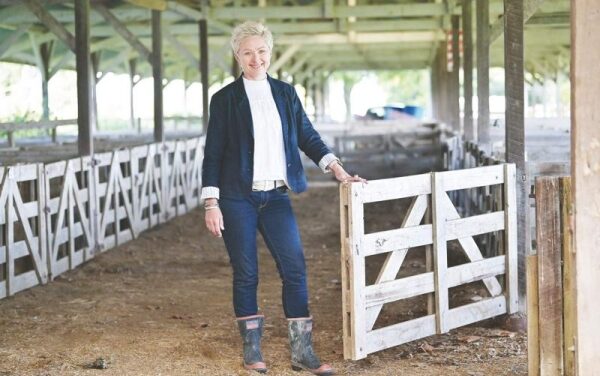Growing numbers of farmers and growers are seeking help from the Rural Support Trust as they grapple with weather events, compliance and economic pressures.
Calls to the trust’s 0800 telephone number were 53% higher last year than in 2022, and increasing numbers of people are also directly approaching trust members or using email or social media.
The trust received 2904 calls to its 0800 number last year, 1000 more than a year earlier, though not all those calls were from people seeking help.
Trust chair Neil Bateup said the increase is logical given last year’s weather events, but pressure on farmers is growing from compliance demands and economically due to low product prices, rising interest rates and high inflation.
“We are busier overall but that could be because our people are better known or there are more people being referred to us.”
People are more inclined to seek help, a shift he welcomes.
“When we first start the trust in the Waikato 20 years ago, we’d never get someone saying they’re not coping.
“We do now.”
Bateup said across the country trusts are seeing a growing number of cases where farmers and growers are feeling overwhelmed.
As the workload increases, the number of people helping the 14 trusts is growing, and now exceeds 360 trustees, co-ordinators, administrators and facilitators.
While the trust is coping with the increased workload, Bateup said it is hoping to attract more sponsorship to support its work, including reinstating the Farm Business Advice Fund, which pays for advice for farmers facing financial pressure.
The Ministry for Primary Industries (MPI) ceased contributing to the fund at Christmas.
Since April 2020 the fund had received 157 applications with half of those lodged in the previous 12 months.
Bateup said the trust is investigating alternative funding sources to support the co-funding from the NZ Banking Association.
Vicki Crosswell, the co-ordinator of the Gisborne trust, said a year on from Cyclone Gabrielle, demand for its services has slowed “a little”, but farmers and growers are still struggling to repair their businesses and lives.
“It is not business as usual.
“The toll has been huge on farmers, growers and horticulturists.
“Some farmers have still not been able to get to the back of their farm because it has been too wet,” she said.
Thousands of kilometres of fences still need to be restored along with other infrastructure, such as tracks, before farmers can start generating income.
Much of the east coast has been wet since the cyclone, taxing the wellbeing of farmers and growers, which remains a focus for the trust.
“They need to be looking after themselves, to be in a good place and able to make the right decisions,” she said.
“They need to look after themselves and don’t be afraid of asking for help.”
Crosswell has had two approaches this year from farm staff who have lost their jobs due to the financial pressures on farmers.
Northland trust chair and National Trustee Michelle Ruddell said they are still seeing new cases related to last year’s adverse weather.
“Many have not reached out previously but come along to an event and realise the support available and find the courage to ask for help.”
A year ago they had between 40 and 45 farmers seeking one-on-one assistance. Currently that number is 140.
When personal wellbeing and stress levels are high, Ruddell said, it compounds other factors such as farm performance.
Southland Rural Support Trust wellness co-ordinator Rachael Nicholson said the organisation received 31 new cases between August and November, twice as many as in the same quarter a year before.
Farmers are struggling to deal with last year’s flooding, financial and employment pressures, personal and business relationship challenges and exhaustion from working long hours over calving and lambing.
Bateup said every case is different, but last year there were consistent themes of weather, pressures from staffing and finance.
Usually there is an underlying issue.
“It may start as one conversation but as we peel back the layers there are often a number of factors impacting their mental health.”
Bateup said once people sit down and work through their issues and come up with a plan, those pressures often ease.
Support is provided in different ways, from one-on-one assistance and a referral to a health or business professional, to dealing with adverse events for which it gets funding from the MPI, to raising awareness of its work.
Bateup said this is often done at events alongside entities such as DairyNZ, Beef+Lamb New Zealand or activities such as surfing, skiing or mountain biking for farmers.
Often the presence of the trust at these events allows a farmers to approach a trust member and seek assistance.










